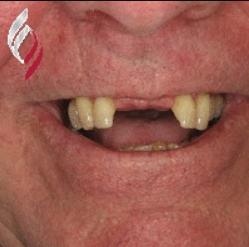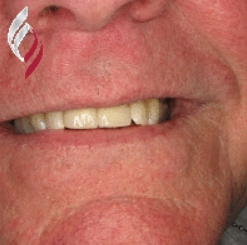Blog
All you need to know about dental implants

There are many options available to you if you would like to replace your missing teeth and get that smile that you have always dreamed of. One of those options is denture implants.
Dental implants provide you with a long term solution to replace your missing teeth. You can see one of our patients’ fantastic results below:
What is a dental implant?
Dental implants are titanium screws that are placed surgically into the jawbone by your dentist. These are placed in areas where there are missing teeth below the gums. Replacement teeth can then be mounted onto these screws, leaving you with the perfect smile that you’ve been waiting for!
How much do dental implants cost?
We estimate £2000 per implant/crown however this can increase depending on the condition of the tooth.
Can I get dental implants?
You may not be a good candidate for dental implants if you have poor oral health, gum disease, are a smoker or have diabetes. There are some other conditions that could impact the success of the implant.
Ask your dentist for more information on whether you’re a suitable candidate.
Preparing for your procedure
A thorough evaluation will be carried out before the procedure takes place. You will have a comprehensive dental evaluation, likely to include x rays, 3D images and have models made of your teeth and jaw.
We will carry out a review of your medical history to ensure that the procedure is right for you, and can be undertaken appropriately. Once we have all of the information that we need, we will provide you with a treatment plan that is tailored to suit you. This will take into account how many teeth you are having replaced and the condition of your remaining teeth and jawbone before the treatment.
What about after the procedure?
You may experience some discomfort after the procedure, as is the case with any surgery. These discomforts may include:
- Swelling of the gums and face
- Bruising of the skin and gums
- Pain at the site of the implant
- Minor bleeding
You can help your implants and your natural reaming teeth last longer by:
- Practising great oral hygiene! They should be kept clean, just like your real teeth, to ensure they last.
- See your dentist regularly to ensure they stay healthy and are functioning properly.
- Try and halt potentially damaging habits such as chewing hard items and drinking caffeine products.
Want to find out more about the options available to you and whether you are a good candidate for dental implants? Contact our treatment coordinator Katherine on 01952 460119 or email us.
Share this post:


